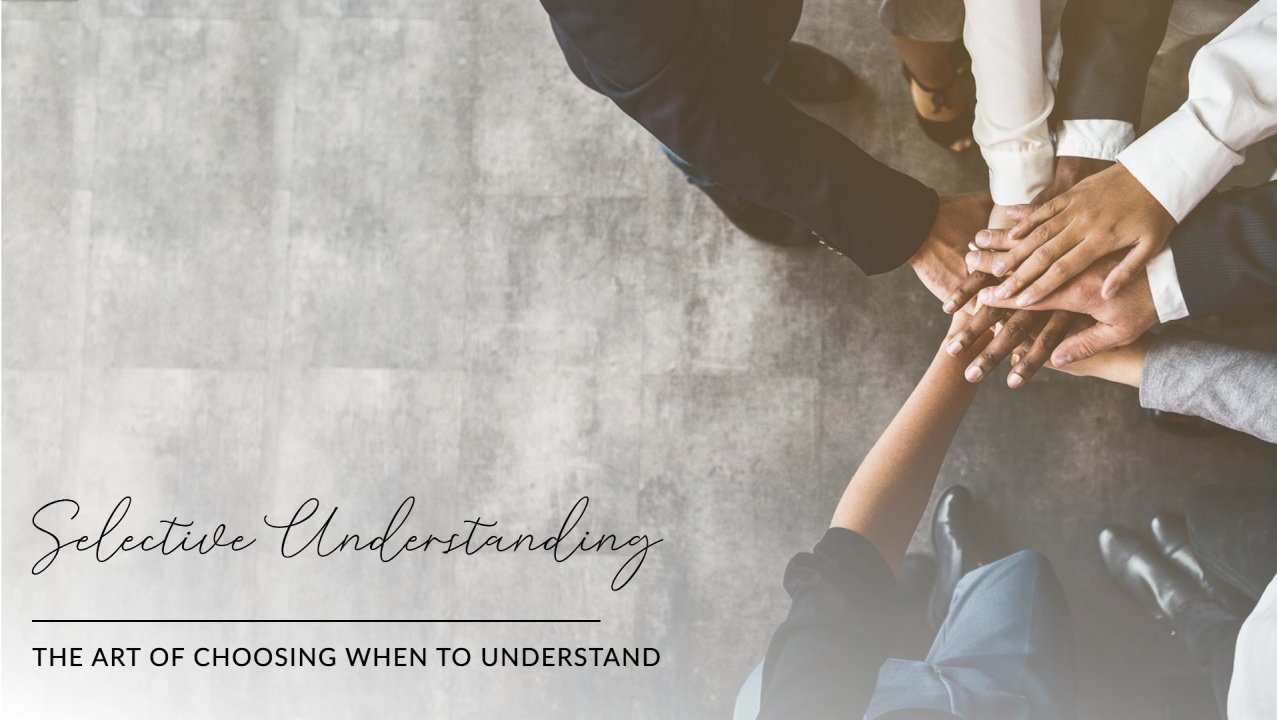Remember those times when you thought you really got someone? You felt like you understood their perspective, their values, maybe even their quirks. And then… something happens. They act in a way that just doesn’t line up. It throws you for a loop. It makes you wonder, “Did I ever really understand them at all?”
I’ve been wrestling with this lately. I had an experience with someone I genuinely believed was mature and understanding. But their actions recently… well, they made me question everything. It felt like they were choosing notto understand, even though I thought they were capable of it.
It got me thinking about what understanding really is. Is it a capacity we have, like being able to see or hear? Or is it a choice we make, like deciding whether to listen or not? I used to think it was more of a capacity. If you couldunderstand something, you just did. Like, once you understand that 2 + 2 = 4, you can’t suddenly “un-understand” it. It becomes a part of your knowledge.
But this experience made me realize there’s a crucial element of choice involved. Even if someone has the capacity to understand, they can still choose whether or not to engage that capacity. They might choose not to understand because:
- It’s easier: Understanding sometimes requires effort, empathy, and a willingness to step outside of our own perspectives. It can be easier to remain in a state of comfortable ignorance.
- It’s inconvenient: If understanding something challenges our existing beliefs, values, or self-image, we might resist it. We might choose to downplay or ignore information that makes us uncomfortable.
- It doesn’t serve their immediate needs: Sometimes, people understand things only when it’s convenient for them. They may choose to “forget” or disregard information that doesn’t align with their desired outcome or serves their immediate needs.
It’s like they’re building a wall around their understanding, making it inaccessible even to themselves. They might:
- Deny it: Pretend they never understood it in the first place.
- Rationalize it: Come up with reasons to justify their actions, even if they contradict what they previously understood.
- Block it emotionally: Shut down their feelings to avoid dealing with the implications of what they know.
This idea of “selective understanding” is really what’s been bothering me. It’s like they’re picking and choosing when to understand, based on what suits them best. It makes you question the genuineness of past interactions.
It’s frustrating, right? It makes you question your own judgment. It makes you wonder if anyone truly understands anyone else.
But here’s what I’ve been trying to tell myself:
- Everyone has blind spots. We all have areas where our understanding is limited or biased, even if we don’t realize it.
- People are complex. We’re all a mix of emotions, experiences, and beliefs. It’s impossible to fully grasp another person’s inner world.
- I can only control my own actions. I can’t force someone to understand me or change their behavior. I can only focus on being as understanding as I can be, and on continuing to learn and grow.
This whole thing has been a bit of a shake-up for me. It’s made me think more deeply about what it means to truly understand someone, and the role choice plays in that process. And even though it’s been challenging, I think it’s ultimately helped me grow.
Maybe you’ve had similar experiences. I’d love to hear your thoughts.
